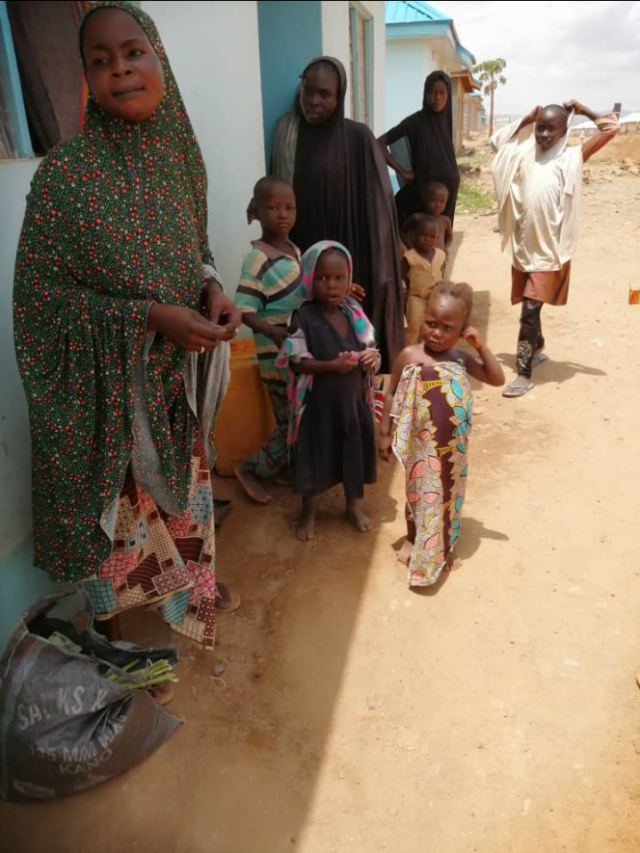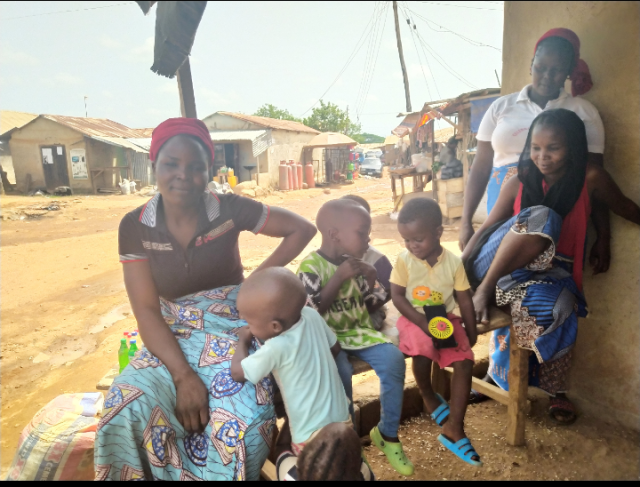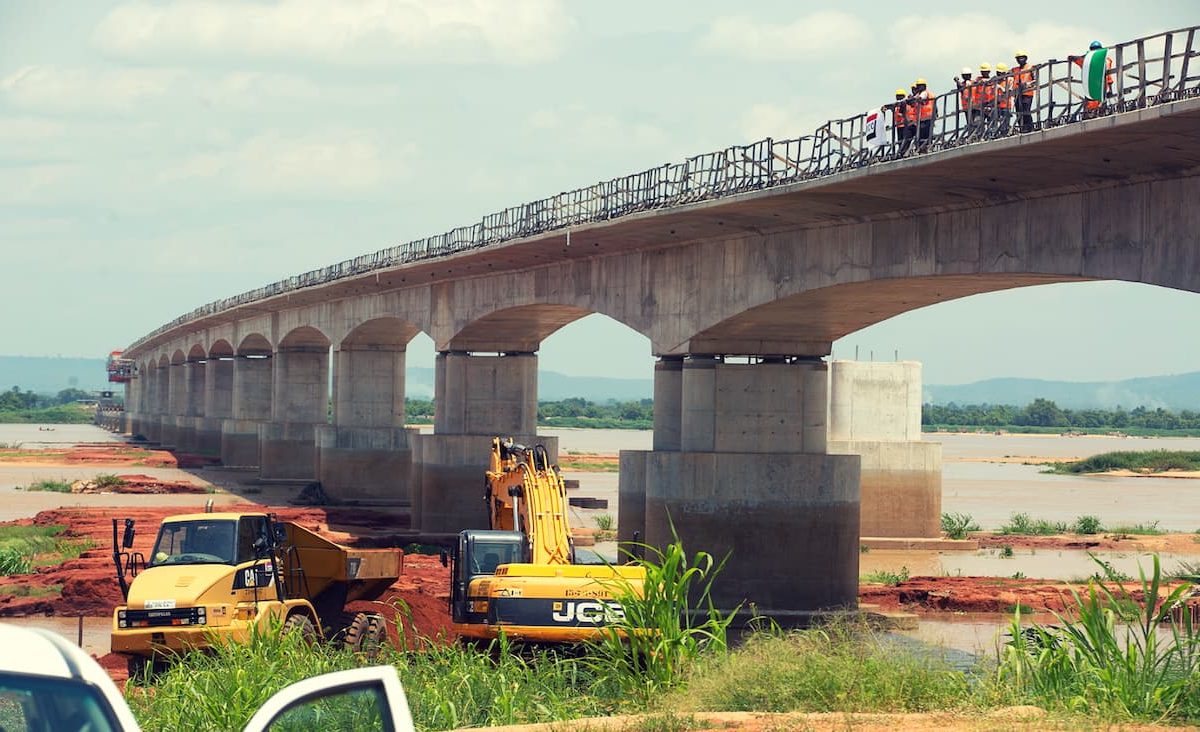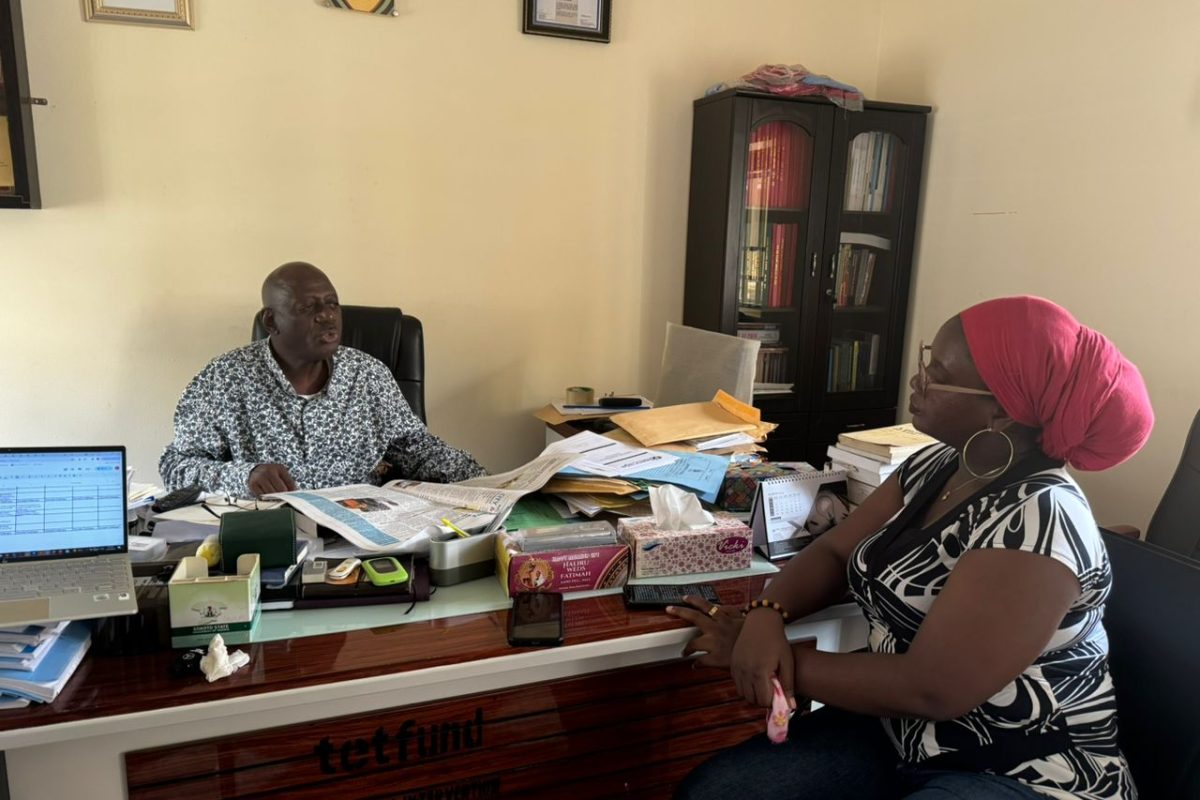This investigation by Titilope Fadare and Majeed Bakare reveals that the outbreak of COVID-19 has brought drastic changes to the lives of peoples and nations across the world as they are forced to adapt, creating various forms of safety nets for the poor and vulnerable.

This is because while many can try to navigate through current realities, the poor and vulnerable groups, especially those living with disabilities, or affected by natural disasters, armed conflicts, among others, are the worst hit by the global pandemic.
In this category are Internally Displaced Persons (IDPs) whose lives were already torn apart as a result of the ravaging Boko Haram terror campaign in the North-East of Nigeria.
Over the years, thousands of families and households have been forced out of their communities and fled to find succour in other peaceful parts of the country.
For months and years, they have been managing their lives and adapting to a sad situation they did not cause or had any control over. They huddled in dingy camps and struggled with government neglect and insufficient care by the authorities.
The able-bodied ones and breadwinners daily eke a living to provide food while everyone battled with inadequate supply of water, sanitation and health services, among others. But coronavirus has come to make things worse.
Presidential pronouncement of hope…
With the unprecedented outbreak of the novel coronavirus and the various lockdown measures introduced by authorities to curtail the spread, little life support hangers IDPs clung unto, have become severed. Like it is for millions of citizens, sources of daily livelihoods were cut off and hunger, stress and distress stalked mercilessly. A previous report by this newspaper revealed how IDPs were trying to cope during the lockdown.
However, with President Muhammadu Buhari’s broadcast on March 29, 2020, came some hope as he announced that help would be coming the way of the displaced persons through distribution of relief items and palliatives to cushion the dire effects of the pandemic on them.
“For the most vulnerable in our society, I have directed that conditional cash transfers for the next two months be paid immediately. Our internally displaced persons will also receive two months of food rations in the coming weeks”, Buhari said.

Hope deferred…
But over one month after the President’s broadcast, our reporters visited four IDP camps in the Federal Capital Territory (FCT), Abuja, to find out if their conditions is better. These camps shelter Nigerians from the north-eastern states of Borno, Yobe, and Adamawa, among others that have been badly hit by the terror reign of Boko Haram.
The findings are revealing as well as disturbing.
The government has not distributed any palliative as promised and directed by Mr. President.
According to people interviewed around the camps, provisions of relief items from the government stopped since 2019, months before the pandemic perched its piercing claws in Nigeria.
Case scenarios of the abandoned lots…
Apo camps: IDPs living in Wasa, a village at the outskirts of Apo, a major satellite town in the Abuja Municipal Area Council (AMAC), are a population of 5219 persons, according to the chairman of the camp, Usman Ibrahim.
The people in this camp are currently occupying some buildings owned by the Federal Capital Territory Administration (FCTA) meant for resettlement of Abuja indigenes displaced by urbanization.
Instructively, these IDPs had been told to quit the buildings with no alternative provided, a fact that already complicated their precarious conditions of survival. It was bad enough that the buildings are almost at the brink of collapse. But for these displaced citizens, it is better than nothing.
For the over 5000 people living in this camp, they are yet to receive any help from the government per pandemic palliatives. They only received help from two non-governmental organizations – Goodluck Jonathan and T.Y Danjuma Foundations – which on several occasions have brought food items. Two days before the visit, T.Y Danjuma Foundation gave 600 bags of rice to the IDPs in this camp, Ibrahim told OrderPaperNG.
The chairman of Wasa IDP camp said the last time they felt the presence of the government was in 2018 when Hajiya Sadiya Farouq, the current Minister of Humanitarian Affairs, Disaster Management and Social Development, was the Chairman of the National Commission For Refugees Migrants and Internally Displaced Persons (NCFRMI).
According to him, the Commission under her brought 137 grinding machines, a truck of food items, spraying machines, and 142 chemicals for their farms.
Mr. Ibrahim also informed that the National Emergency Management Agency (NEMA) and its counterpart in the FCT, (FEMA) have never provided palliatives to them either before or during the pandemic.
“NEMA and FEMA have never brought anything to us. Since the lockdown began, we have been calling government agencies. Nobody is responding to us. NEMA came to us and collected our list a month ago and up till now, we have not seen them. I called the deputy director of the refugee commission too, there was no response”, he said.
Within the Apo environs, which by the way is located to the south of Abuja city center, there are several other settlements occupied by IDPs. These clusters of IDPs live communally such that when a settlement gets donations from NGOs, the items are shared to others in the adjoining mini-camps.
Panteka is a settlement in Apo. According to the chairman of this cluster, Dauda Tra, it hosts about 1000 IDPs who have been living there since 2014.
He gave a similar narrative, lamenting that most residents rely on donations from people as nothing came from the government.
“We complain because nobody knows us. We live basically on whatever they give to us. Sometimes for four months, we don’t get anything. We have not seen anything from the government,” he lamented.
200 meters away from Panteka is Waru. This particular settlement houses 4732 displaced persons who have integrated into the community after they were evicted from abandoned buildings they used to stay.
This settlement has extensions in Panteka and Zinda, another IDPs hood.
Elisha Haruna, who lives in this settlement disclosed that so far, they only get donations from religious institutions and they have not received any form of palliatives from the government. They survive with proceeds from their personal businesses.

A slightly different story…
It was however a slightly different story at the New Kuchingoro, a camp also under AMAC. Settlers here told OrderPaperNG that the Federal Capital Territory Emergency Management Agency (FEMA), two days before the initial lockdown which spanned for 14 days, brought two buckets of liquid soaps for hand washing to be shared among 1573 persons and 282 households but not food.
Philemon Emmanuel, who is the camp leader said: “The government has not given us palliatives.
Although, two days to the first lockdown, FEMA brought two buckets of liquid soap to wash our hands. The buckets are broken. They have not come back here since then. Goodluck Jonathan Foundation brought hand sanitizers two weeks ago.
“On Friday, we saw some people from Victims Support Fund, an NGO who came with food items- rice, beans, and maize. Before they brought this thing, some of our people did not have anything to eat in this place.”
Crippled businesses and bribe-for-passage…
Forgotten by the government, IDPs survive with proceeds from their menial businesses to make ends meet, especially since the government partially lifted the lockdown in the FCT on May 4, 2020. But they are faced with low or outright non-patronage of their daily hustles, a prevalent story among the general citizenry of the country.
In Waru settlement, most men are farmers in Nasarawa state which is currently under lockdown. Thus, they are either stay back in their settlements without food or endure harassment from the law enforcement agents who seek bribe before allowing them to pass through.
To avoid meeting the security agents, they have to leave their houses as early as 4:00am to be able to get proceeds from the farm to sell in their settlements. But to their dismay, sales have terribly dwindled. The prices of goods when available have also gone up.
Sarah Philemon, a beans cake seller in the settlement, decried expensive food items and low patronage.
“I fry akara here normally. Now, as I fry, people don’t have money to buy. Things are now expensive and I don’t have money to buy more beans and groundnut oil so I manage the little I have.”
Cab drivers and self-imposed quarantines…
The men living in Panteka settlement are mostly taxi drivers or bike riders. Although the lockdown has been eased, patronage is not as it used to be.
“Some of us can’t go anywhere. Those who are taxi drivers or bike riders are here, they don’t have work. There are about 500 people now sleeping inside and they are not doing anything. When they eased the lockdown, we go out to look for work but we can’t find work to do. People are not patronizing us”, the chairman, Tra said.
Both men and women in New Kuchingoro IDP camp work as labourers on construction sites but with the directive to halt non-essential businesses, they are out of jobs.
“Truly, it has been difficult for us. We used to go before now to look for labourer work before we get something to eat. Then we heard that we are going for lockdown and since that time, we heard Mr. President promised he is going to feed especially the IDPs but we have not seen them”, the chairman, Emmanuel said.
While most of the IDPs got to know about the novel coronavirus from sensitization messages on radio and television, they have little or no means to protect themselves from the virus due to their numbers cramped up in small spaces.
Luckily, some residents in Waru settlement are educated. Elisha, for instance, is a 500 level medical student of the University of Benin, who returned to unite with his family due to the closure of academic institutions.
From his knowledge and exposure, he is able to teach camp members on how to maintain personal hygiene and social distancing, use of face masks and hand sanitisers. Sadly, just a few of the persons can purchase these items while most of them live in squalor which makes it nearly impossible to observe the safety guidelines.
In the settlement, they tell the taxi drivers for instance, not to mix with others to help curb the spread of the virus. This became necessary because the cab drivers usually come in contact with passengers who may have the virus.
“We were also not briefed about coronavirus. Since some of us are educated, we check the internet to get information that is how we know. Those among us who are taxi drivers, we identify them and make sure they don’t mix with us because we don’t know the people they have been in contact with. But they sanitize their hands”, the undergraduate said.
In the other IDP camps visited for this story, no protective measures were seen in place to safeguard lives.
Frustrated back to ravaged bases…
A combination of several frustrations have made some of the IDPs return to their communities during the pandemic not minding the consequences of the ongoing insurgency in Borno state.
“Some men have carried their wives to the village, back to Gwosa. There’s nothing they can do. They went back despite the attacks because there’s hunger here”, the Chairman said.
For him, it is better his people return to their communities they had initially fled from, to feed properly not regarding the killings by Boko Haram insurgents, than die in the nation’s capital as a result of hunger.
The sick are left to die as the pregnant deliver in shanties…
From most of the IDP camps visited, health services remain a major challenge. It was learnt that when they initially migrated to the nation’s capital, the authorities made arrangements for free healthcare services for them.
They were given ‘authorization letters’, as they call it, that allowed them to access free treatment in Maitama and Asokoro general hospitals. But this service was discontinued in 2019 when Farouq assumed her ministerial position.
Since then, those who can afford it either go to nearby primary health care centres or seek local remedies among themselves. In some instances, some critically ailing IDPs were left to die.
OrderPaperNG witnessed this unfortunate scene in New Kuchingoro camp where a man in his 40s was seen lying frail on the floor close to one of the make-shift shelters.
“The major challenge here is health because if someone falls sick, if you don’t have money, you will just die. Our people don’t like to go to the National Hospital because if you go there, they will keep referring to different places. Nobody will attend to you.
“People are not thinking of how to protect themselves from coronavirus. We are thinking of how to get food to eat. That is the fact”, the chairman of the camp, Emmanuel said.
In Panteka and Waru settlements, they contribute monies to pay for the hospital bills for any sick person.
Pregnant women who are on the verge of labour also encounter these trials.
“When women want to deliver babies, if they have money they go to Kuchingoro Primary Healthcare center, if they don’t have money, they stay back and give birth at home”, Elizabeth Sunday, a woman in Kuchingoro camp said. A child was lost in the Durumi camp during the lockdown period as a result of the withdrawal of the ‘authorization letters’.
“During the lockdown, we helped deliver a baby but it was premature- 8 months. We took her to the National Hospital and they kept referring us up and about until the baby died.
“At the National Hospital, the CMD was receiving IDPs but now they have suspended authorization letters for us for four months”, Liyatu Ayuba, woman leader of Durunmi camp told this newspaper.

Dodgy reaction from officials…
Several attempts were made to get reactions on the various findings from the Ministry of Humanitarian Affairs, Disaster Management and Social Development; as well as the authorities of the FCT. Most of the officials contacted demurred while the few who responded could not adequately account for the neglect of the IDPs.
The Spokesman for the Ministry, Salisu Na’inna Danbatta, simply directed all enquiries elsewhere: “The camps are under the management of the FCT”, he said via text. Recall that OrderPaperNG had also received a similar reaction on a previous report about the Durumi IDP.
When the spokesperson of FEMA, Florence Wenegieme, was contacted, she previously replied some weeks ago that the agency’s officials were attacked when they visited a camp. But she did not answer subsequent calls and text messages seeking details on this report.
It is however, worth stating that the FCT Minister of state, Ramatu Aliyu, in an interview with a national television station on the 19th of April, 2020, made suggestions as to why the government is unable to provide palliatives to vulnerable groups.
According to her, the government’s record and social register for displaced persons is incomplete because they (IDPs) are usually not permanently resident in a place.
She had said: “Well, practically now, we should have about 3,000. If we capture the IDPs and PLWDs or destitute, most of them are also transient kind of people, so if we have them today and tomorrow they are relocated to their villages or one way or the other, they decide to move, I don’t think we will consider that as a complete headcount that will be very valid. This time around, we are going into actual residents and indigenes of the city to ensure that the real people that need palliatives or government support are captured.
“We have a social-register at the Social Development secretariat that has been saddled with the responsibility of taking care of the less privileged, IDPs and people living with disabilities but most of the people targeted are in the villages and are not captured in the register. So, this goes a bit further into villages and trenches and this time around after the distribution, we will ensure that FCT does have updated social register.”
In what may be regarded as a puncture of the minister’s claim, executives in the camps visited told our reporters that their details have been received by NEMA and displayed a piece of evidence below to buttress their claims.
EDITOR’S NOTE: This report was made possible with support from the International Centre For Investigative Reporting (ICIR).



